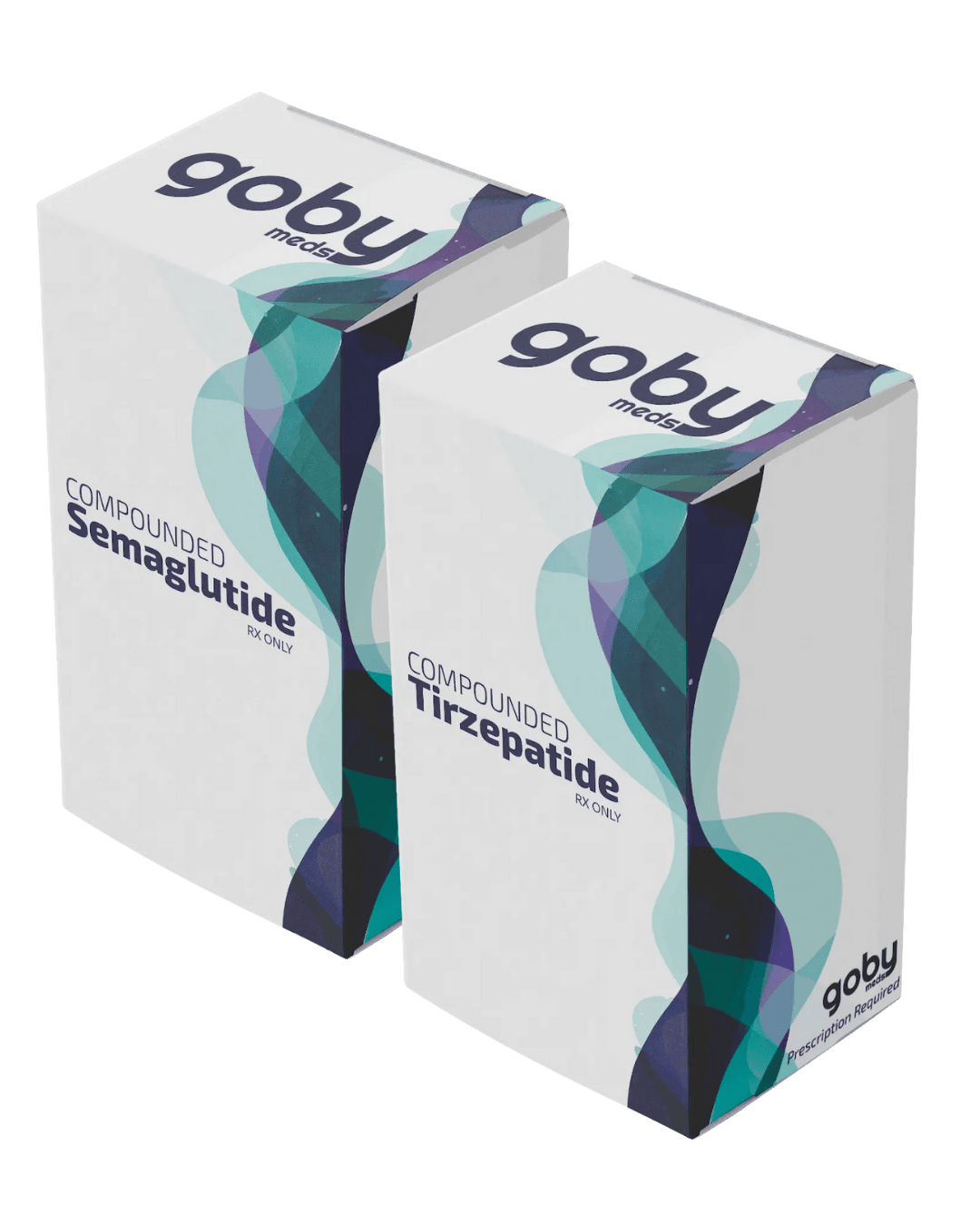What is "Food Noise"? Understanding the Constant Chatter About Eating
Are you thinking about your next meal while you’re still eating your current one? Do you find yourself constantly battling thoughts about the snacks in your pantry or mentally negotiating with yourself over a craving? This persistent, often exhausting internal monologue about food has a name: "food noise."
If this experience sounds familiar, it’s important to understand that you are not alone, and this isn't simply a matter of weak willpower. Food noise is a legitimate biological phenomenon driven by complex signals between your gut, your hormones, and your brain. For many, it's the single biggest obstacle to achieving their health and weight management goals.
The good news is that as our understanding of this phenomenon grows, so do the tools available to manage it. New classes of medications, specifically GLP-1 agonists, are offering a way to quiet this noise by targeting its physiological roots.
In this article, we’ll break down the science behind food noise and explain how modern treatments can help you turn down the volume and regain control.
The Science Behind Food Noise: Why Can't I Stop Thinking About Food?

The relentless stream of thoughts about food isn’t a personal failing; it’s the result of powerful biological drivers that can be difficult to override. Several key factors contribute to this mental chatter.
- Hormonal Imbalances: Your appetite is largely regulated by two key hormones: ghrelin (the "hunger hormone") and leptin (the "satiety hormone"). When this system is dysregulated—a common issue in individuals with obesity or insulin resistance—your brain may receive continuous "I'm hungry" signals from ghrelin, even when your body doesn't need calories. This creates a constant, nagging drive to eat.
- Brain Chemistry and Reward: As explained by research in journals like Cell Metabolism, our brains are wired to seek out pleasure and reward, and high-sugar, high-fat foods are powerful activators of these pathways. When you eat these foods, your brain releases dopamine, a feel-good chemical. Over time, your brain can begin to crave that dopamine hit, leading to intrusive thoughts and intense cravings for specific foods, creating a hard-to-break cycle.
- Insulin Resistance: This is a critical piece of the puzzle. When your body’s cells become less responsive to insulin, your blood sugar levels can become unstable. The resulting spikes and crashes can trigger intense hunger and cravings, fueling the food noise. The Centers for Disease Control and Prevention (CDC) notes that this cycle not only contributes to weight gain but can also make you feel like you are constantly needing to eat to stabilize your energy levels.
- Environmental and Psychological Triggers: We are surrounded by cues to eat—from food advertising to social media posts. For a brain already primed for food by hormones and brain chemistry, these constant external triggers can turn the low hum of food noise into a deafening roar. Stress also plays a role by increasing cortisol, a hormone that can amplify appetite and cravings.
How GLP-1 Medications Can Quiet the Noise
GLP-1 (Glucagon-Like Peptide-1) receptor agonists are medications that work by mimicking a natural gut hormone that helps regulate appetite and blood sugar. Clinical research, such as the landmark STEP trials published in The New England Journal of Medicine, has shown their profound effect on weight management, largely because they directly address the biological sources of food noise.
They work in three key ways to turn down the volume:
- They Act on the Brain: GLP-1s directly target the satiety centers in the brain, including the hypothalamus. This is the core of their effect on food noise. They help restore the feeling of being satisfied, reduce the rewarding sensation of hyper-palatable foods, and quiet the intrusive thoughts about eating.
- They Slow Digestion: The medication slows the rate at which your stomach empties. This physical effect means you feel fuller for a much longer period after a meal, sending powerful "I'm full" signals back to the brain and reducing the urge to seek out more food.
- They Improve Insulin Response: GLP-1s help combat insulin resistance by improving your body's ability to manage blood sugar. This helps prevent the drastic blood sugar swings that trigger urgent, powerful cravings and contribute significantly to the mental chatter of food noise.

A Tool, Not a Magic Wand: A Holistic Approach is Essential
While GLP-1 medications can be transformative for quieting food noise, they are most effective when integrated into a comprehensive wellness plan. Silencing the biological drive to overeat creates the mental space to build healthier, sustainable habits.
- Mindful Eating: With the biological noise turned down, you can start to listen to your body’s true hunger and fullness cues without the constant distraction of cravings.
- Protein-Forward Nutrition: A diet focused on lean protein and fiber helps support physical satiety and muscle health, complementing the effects of the medication.
- Strength Training: Building and maintaining muscle mass is crucial for a healthy metabolism and long-term weight management.

Is It Time to Find Some Quiet? Talk to a Professional
If you feel like your days are consumed by a constant battle against food thoughts, know that effective, science-backed help is available. You don’t have to fight against your own biology.
At GobyMeds, our licensed medical providers specialize in creating personalized weight management plans. During your one-on-one telehealth consultation, we will listen to your unique challenges, review your health history, and determine if a GLP-1 medication is a safe and appropriate tool to help you finally quiet the food noise. We believe in empowering our patients with the education and support they need to thrive.
Ready to take the next step? Click here to start your consultation with GobyMeds to see if GLP-1 medications are a good choice for you.
Sources & Further Reading
- "Insulin Resistance and Diabetes." Centers for Disease Control and Prevention (CDC). https://www.cdc.gov/diabetes/basics/insulin-resistance.html
- Farr, O. M., et al. (2016). GLP-1 receptor agonists and liraglutide in the treatment of obesity. Diabetes, Metabolic Syndrome and Obesity: Targets and Therapy, 9, 291–307. https://www.ncbi.nlm.nih.gov/pmc/articles/PMC4994553/
- Mehta, A., et al. (2017). The Role of Gut Hormones in Appetite Regulation. Gastroenterology Research and Practice. [suspicious link removed]
- Wilding, J. P. H., et al. (2021). Once-Weekly Semaglutide in Adults with Overweight or Obesity. The New England Journal of Medicine, 384(11), 989–1002. https://www.nejm.org/doi/full/10.1056/NEJMoa2032183
Disclaimer
GLP-1 medications, including semaglutide and tirzepatide, are available by prescription only and must be prescribed by a licensed healthcare provider following an individual consultation. GobyMeds facilitates access to these medications through board-certified prescribers via telehealth, ensuring that treatment is appropriate and medically supervised.
Please note that compounded versions of semaglutide and tirzepatide offered by our partner pharmacies are not approved by the FDA. These formulations are prepared by licensed compounding pharmacies that meet state and federal regulatory standards, and they are intended for patients with a medical need when commercially available alternatives are not suitable.
GobyMeds is a LegitScript certified healthcare merchant, which means we meet rigorous standards for legality, safety, and transparency in the online health and pharmacy space.
Always consult with your healthcare provider to determine whether GLP-1 therapy is right for you.





.svg)